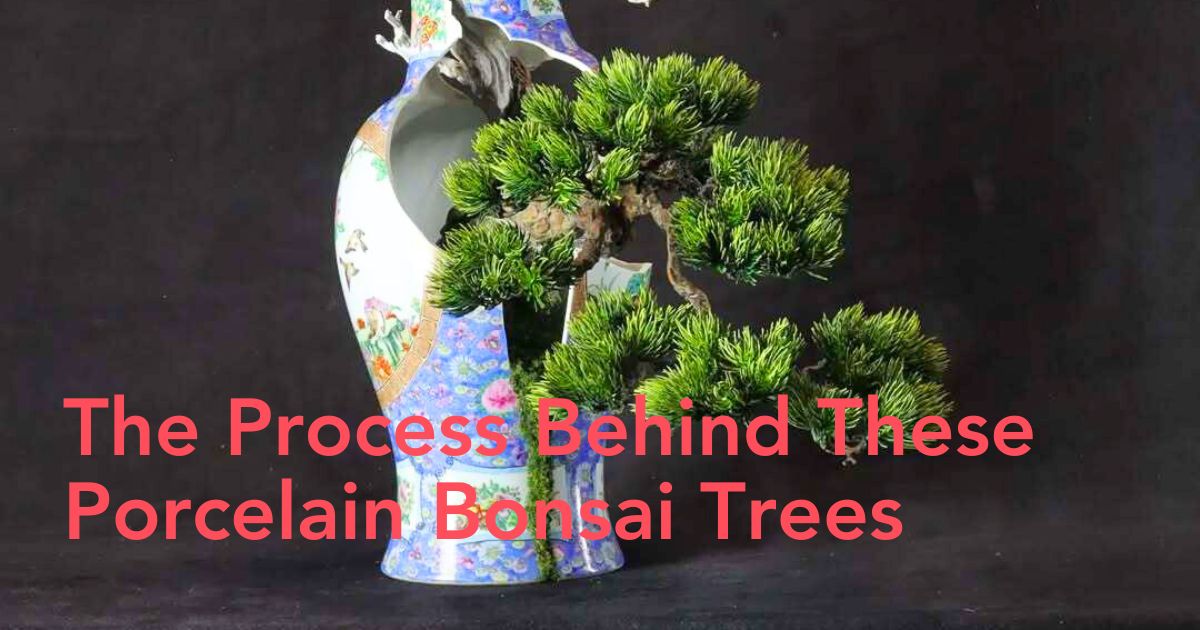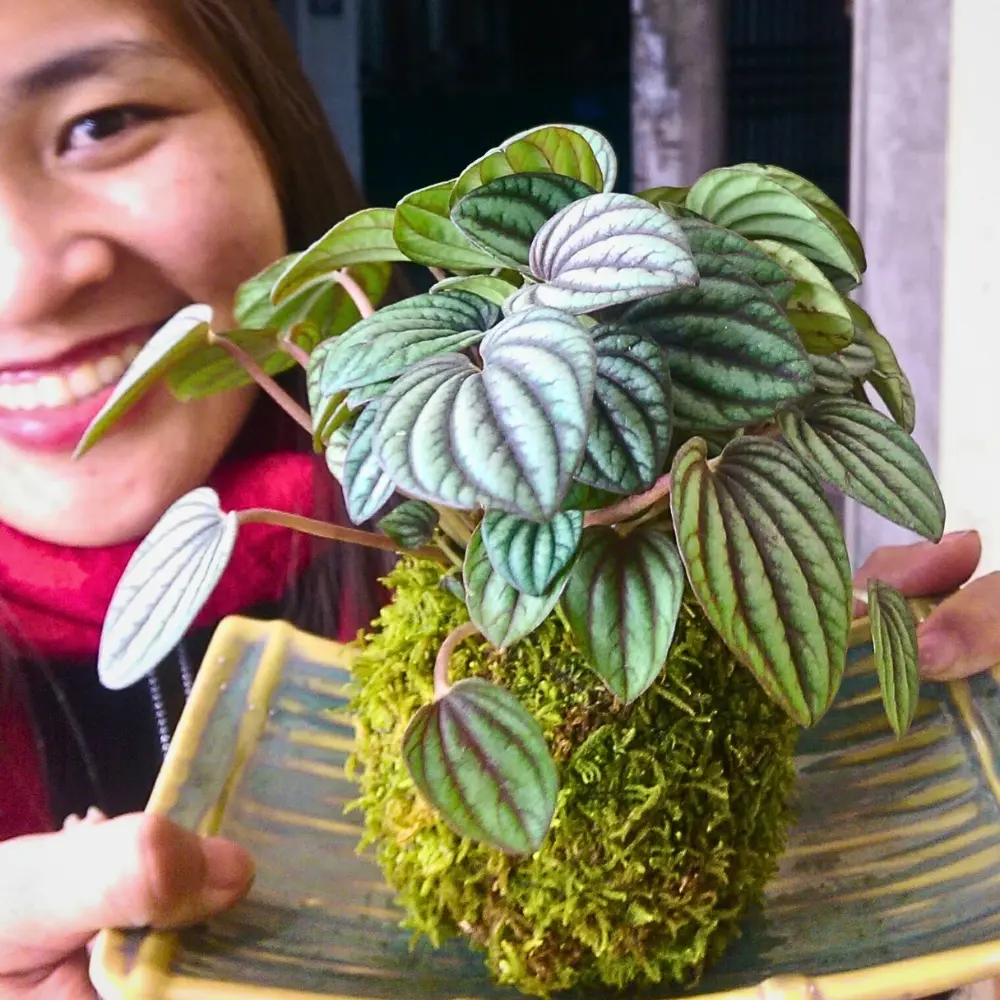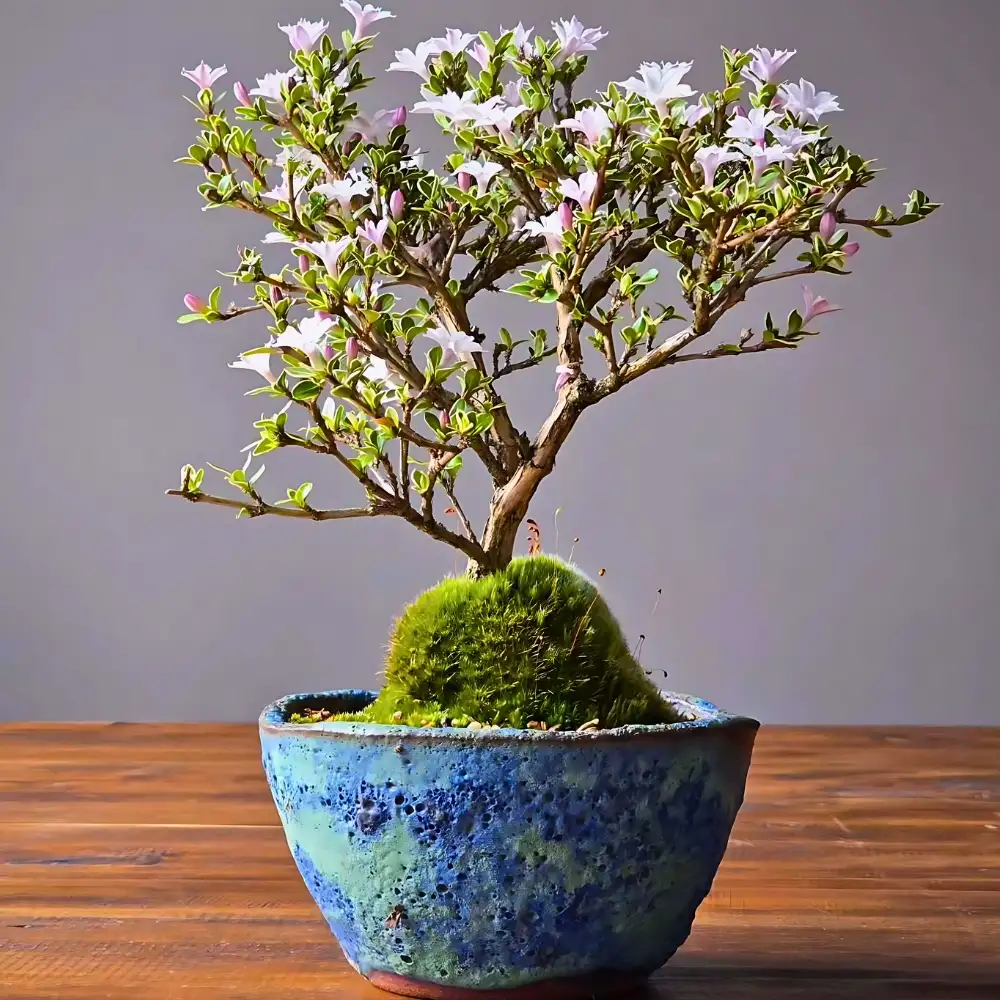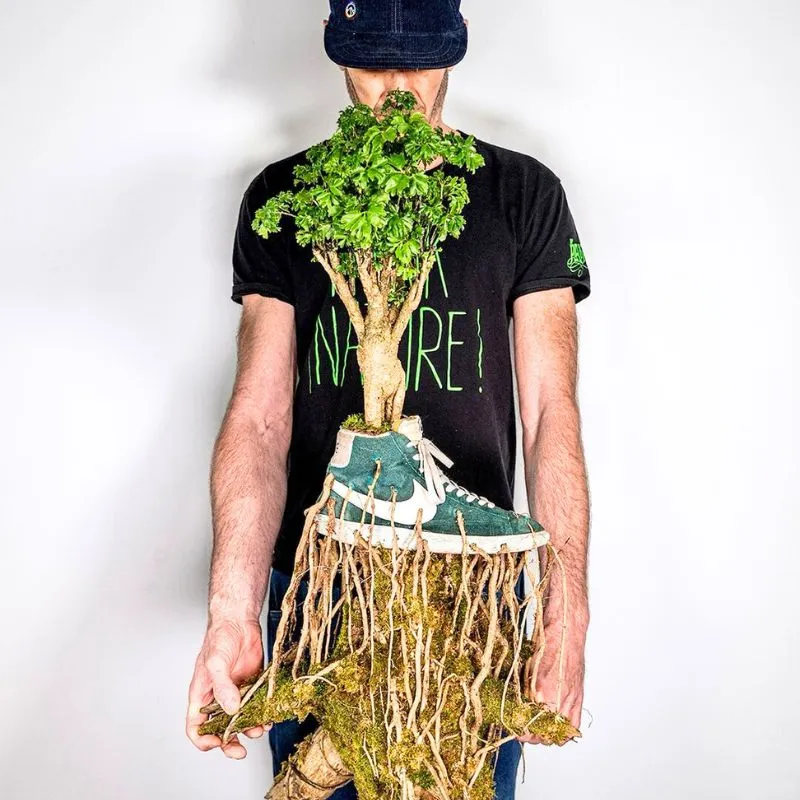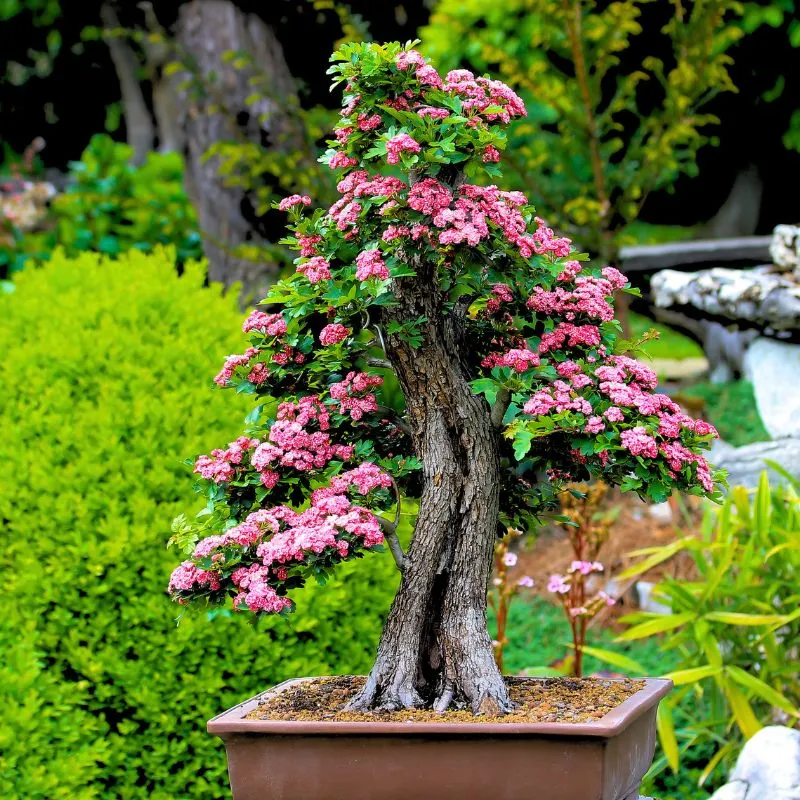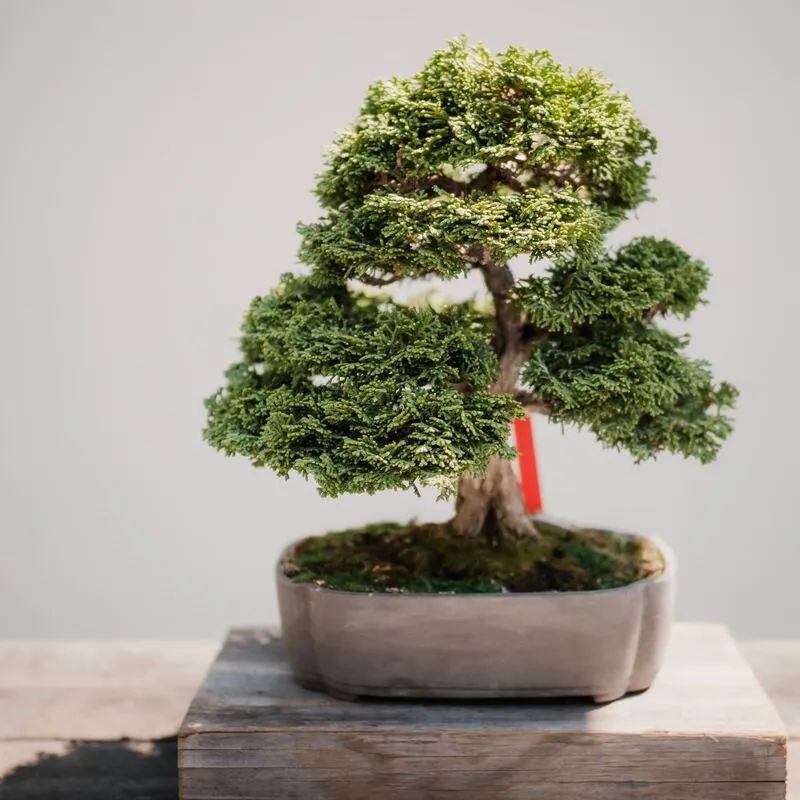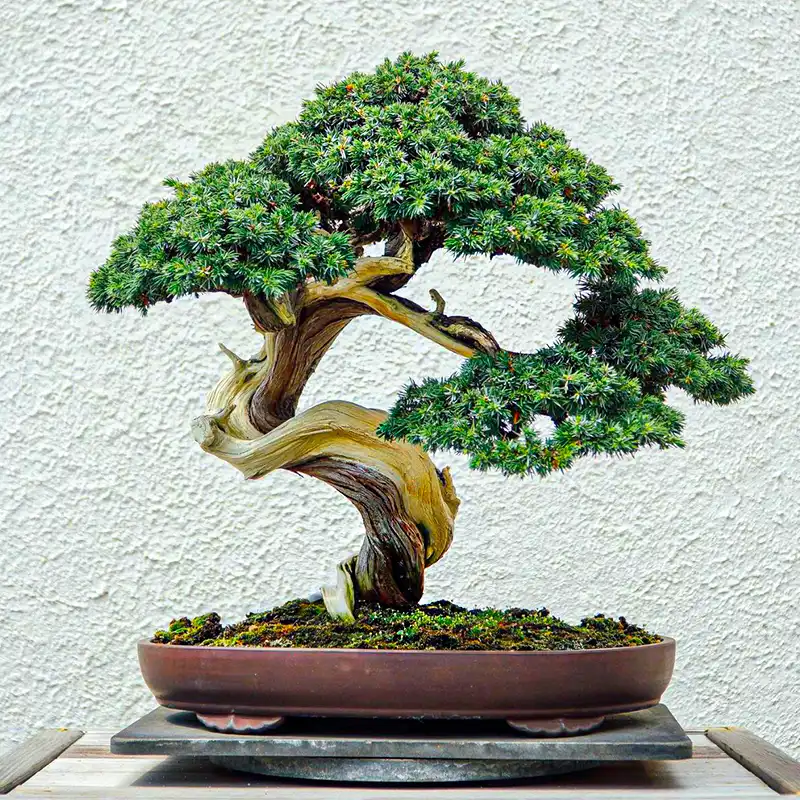Dutch artist Patrick Bergsma reconstructs traditional porcelain into unexpected sculptural works where bonsai trees emerge from cracked and fragmented ceramics. The trees push through broken surfaces, tangled and weathered, as if reclaiming space once contained. These works suggest a push-pull between fragility and force, using contrast and disruption to tell a story of transformation. The tension between the controlled forms of porcelain and the unpredictable shapes of root and branch reveals a layered exploration of time, decay, and the persistence of life through fractured beauty.
Patrick Bergsma’s Bonsai Sculptures Fuse Fragility and Force of Nature
Bergsma was raised in a family of antique dealers, surrounded by art and historical objects. As he developed his own artistic practice, he found himself drawn to the collectibles that filled his parents' shop and home. The artist alludes to the abundant, worldwide history of porcelain in his continuing Expanding China Series.
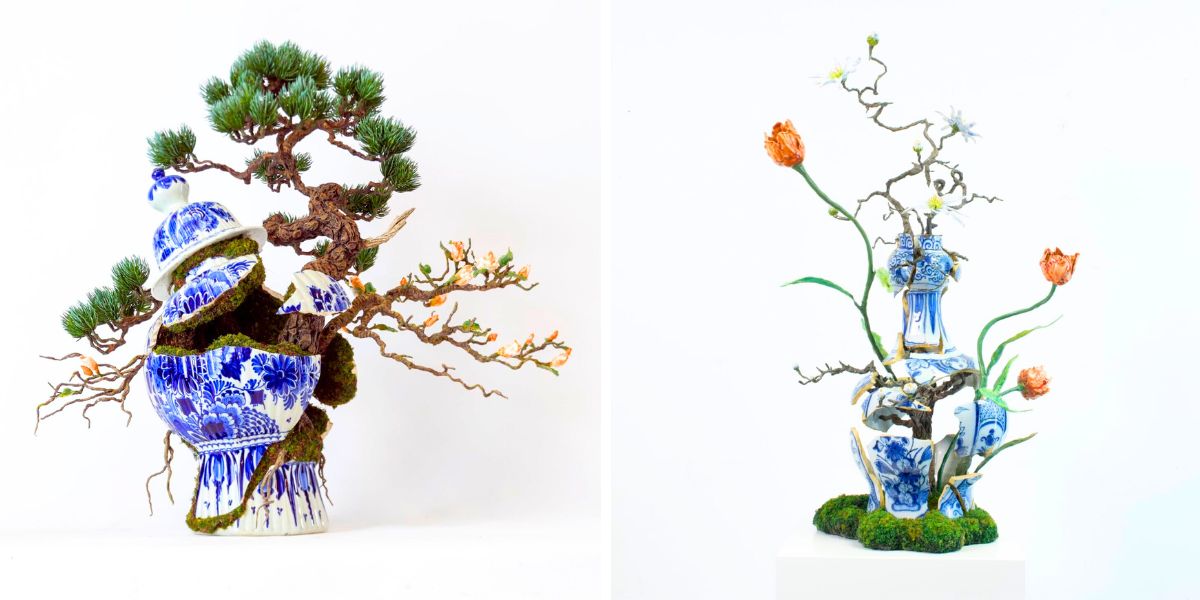
What we refer to as typically Dutch, such as Delft blue, was originally an effort to replicate the highly sought-after porcelain imported from China and Japan. In this series, I frequently incorporate these 17th-century ‘imitations’ along with natural elements such as bonsai and ikebana. The works also reference the Japanese art of kintsugi, substituting the metallic seams of repaired pottery with thick mosses and clinging roots.
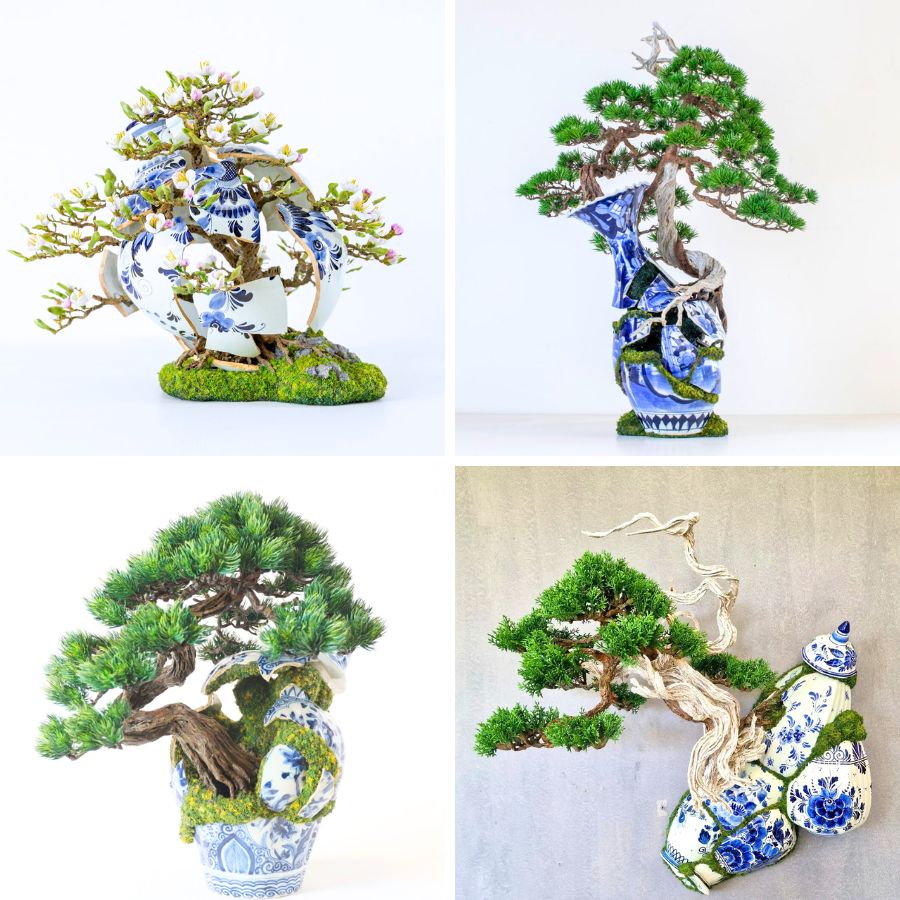
A Garden of Study - Observing Bonsai for Artistic Precision
Patrick Bergsma’s creative process has evolved significantly from his early experimentation with actual bonsai trees. Initially, he worked with real specimens that were either deceased or severely compromised by disease, embedding them into shattered ceramic vessels as a reflection on decay and resilience.
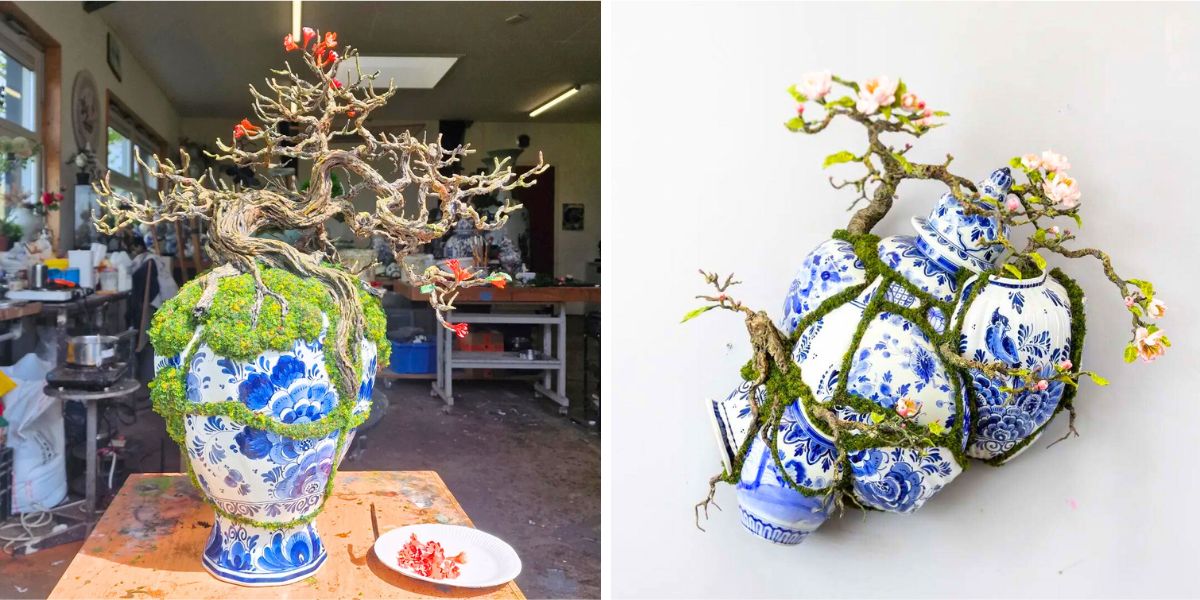
However, recognizing the potential to revive some of the diseased trees—and perhaps out of a growing desire to exercise greater control over form—he began crafting highly realistic bonsai by hand. He now constructs these trees using a carefully developed combination of coconut fiber, polymers, kaolin, and quartz, enabling a sculptural precision unattainable with organic material.
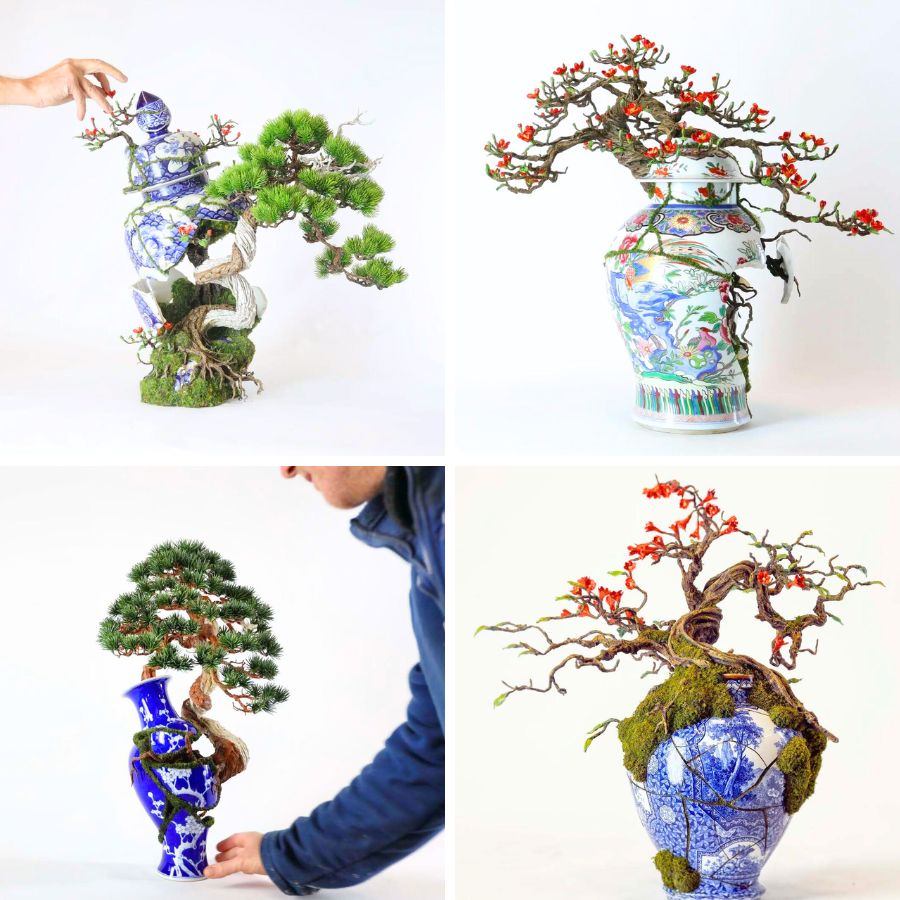
To ensure authenticity in texture and coloration, Bergsma draws direct inspiration from the living bonsai he cultivates in his studio garden. This space has become an essential part of his practice, serving not just as a source of visual reference but also as a place of observation, where he studies the subtleties of bark texture, branch movement, and seasonal color shifts.
Through this meticulous research and fabrication process, Bergsma’s artificial bonsai achieve a lifelike presence, each one embedded in a moment of rupture or emergence as it breaks through the confines of once-whole porcelain. The result is a body of work that blurs the boundary between organic memory and crafted illusion—each sculpture a meditation on life’s persistence through change.
Explore more designs on Patrick Bergsma's Instagram.
Photos by: @patrickbergsma.nl

